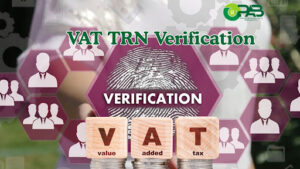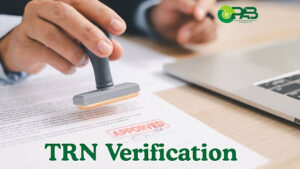Tax compliance is a reality for every business and individual, whether they like it or not. Staying compliant means filing accurate tax returns, paying what you owe, and following the rules set by your local tax authority.
It’s not just about avoiding penalties but also about keeping your finances in order and building trust with regulators.
In this article, we’ll break down what tax compliance means, why it matters, the key steps to follow, and the strategies that make it easier.
You will also learn how governments enforce compliance and what the future holds for tax systems around the world.
Read on to ensure you stay ahead and keep your taxes in order.
What is Tax Compliance?
Tax compliance refers to following all the rules and requirements related to taxes. For individuals, this often includes filing income tax returns and paying personal taxes.
For businesses, it can involve corporate taxes, VAT, payroll taxes, and even cross-border tax rules if they operate internationally.
In short, tax compliance means playing by the rules and fulfilling your obligations to the government.
Why is Tax Compliance Important?

Tax compliance is more than just a legal requirement. It helps businesses and individuals avoid financial penalties and stressful audits.
It also ensures governments can fund public services like schools, hospitals, and infrastructure, things people depend on every day.
For businesses, being tax-compliant builds credibility with banks, investors, and partners. It shows that the company operates with integrity and takes its financial responsibilities seriously.
Key Elements of Tax Compliance
Understanding the key elements of tax compliance is essential for staying on track. Here’s a breakdown of the most important aspects:
✅ 1. Filing Tax Returns on Time
Deadlines matter. Whether you’re submitting a personal return or a corporate one, filing late can lead to hefty fines. In the UAE, timely submission of VAT returns and corporate tax filings is crucial to avoid penalties.
✅ 2. Accurate Record-Keeping and Documentation
Good record-keeping is at the heart of compliance. Keep receipts, invoices, payroll records, and other financial documents organized year-round. For VAT compliance in the UAE, businesses must retain records for five years.
✅ 3. Paying Taxes Due Without Delay
Even if you file your returns correctly, you still need to pay your taxes on time. Delayed payments typically come with added interest or penalties. In the UAE, businesses must pay their VAT and corporate taxes by the deadlines set by the Federal Tax Authority (FTA).
✅ 4. Following Local, National, and International Tax Laws
Different jurisdictions have different tax requirements. For example, businesses in the UAE are now subject to corporate tax and VAT. This new corporate tax law requires businesses to adjust their compliance practices accordingly.
📚 Also read: How to Register for Corporate Tax in UAE.
✅ 5. Responding to Tax Authority Notices
If the tax office sends you a request for clarification or documentation, respond quickly. Ignoring notices can escalate small issues into larger problems. In the UAE, the FTA may audit businesses that fail to respond to such notices.
Types of Tax Compliance

There are different forms of compliance depending on how people and businesses approach taxes. Here are the main types:
✅ 1. Voluntary Compliance
This means taxpayers willingly report and pay their taxes without needing enforcement. Most tax systems, including the UAE’s, rely heavily on voluntary compliance.
✅ 2. Enforced Compliance
If someone fails to meet obligations, tax authorities may take action. This could include audits, fines, or legal measures to recover unpaid taxes. In the UAE, businesses not meeting their VAT or corporate tax obligations face hefty penalties.
✅ 3. Administrative Compliance
This involves following the correct processes, such as filling forms in the right format, submitting them through the right portals, and adhering to deadlines. The UAE’s digital platforms, like the FTA portal, make this process more streamlined.
Common Challenges in Tax Compliance

Tax compliance can be challenging. Here are some of the most common issues businesses and individuals face:
- ✅ Constantly Changing Tax Laws and Regulations: The UAE recently introduced corporate tax in 2023, requiring businesses to adjust their tax practices accordingly.
- ✅ Complexity of Cross-Border Transactions and Digital Services: Global businesses need to manage taxes across multiple jurisdictions, which can get complex, especially with digital services.
- ✅ High Administrative Burden for Small Businesses: Small businesses often struggle with understanding complex tax regulations like VAT and corporate tax.
- ✅ Mistakes Due to Lack of Proper Accounting Knowledge: Many businesses make mistakes due to poor accounting systems or lack of tax knowledge, leading to non-compliance. In the UAE, this can result in penalties for VAT errors.
📚 Also read: FTA VAT Registration in the UAE.
Tax Compliance Strategies for Businesses and Individuals
Smart planning and discipline can make tax compliance easier. Here are some strategies:
✅ 1. Keep Records Organized Year-Round
Don’t wait until the last minute to sort your financial records. Regularly update your files, receipts, and accounting records. This habit ensures that everything is ready when tax season comes around.
✅ 2. Use Tax Software or Professional Help
Tax professionals and accounting software can simplify the compliance process. Firms like OPAB help businesses streamline bookkeeping, VAT filings, and corporate tax requirements to ensure accuracy.
✅ 3. Stay Updated on Tax Law Changes
Governments regularly introduce new tax rules. Keeping up-to-date helps you adjust quickly and stay compliant. For example, the introduction of corporate tax in the UAE means businesses must keep track of the latest regulations.
✅ 4. Leverage Tax Deductions and Credits Responsibly
Tax deductions can reduce your taxable income, but they must be used correctly. Over-claiming deductions can trigger audits. Businesses should understand the legal boundaries to avoid penalties.
✅ 5. Build a Compliance Calendar
Create a compliance calendar that marks all important deadlines for filing and payment. This simple habit will help you stay on track and avoid missing crucial dates.
How Governments Enforce Tax Compliance

Tax authorities use a variety of tools to make sure businesses and individuals comply with tax rules.
✅ 1. Tax Audits and Investigations
Authorities may conduct audits to verify if your returns match your financial records. In the UAE, the FTA regularly audits businesses to ensure VAT and corporate tax compliance.
✅ 2. Penalties, Fines, and Legal Action
Failing to comply can lead to monetary fines, business restrictions, or even legal prosecution. In the UAE, businesses face penalties for late VAT payments or incorrect filings.
✅ 3. Withholding Taxes at Source
In many cases, taxes are collected at the source, such as income tax withheld from salaries. While the UAE doesn’t have withholding tax for most individual incomes, VAT is collected at the point of sale.
✅ 4. Use of Technology
Many governments, including the UAE, have embraced digital systems to track and enforce tax compliance. The FTA’s online portal for VAT filing and corporate tax returns is one example.
📚 Also read: How to File VAT Return in UAE Step by Step in FTA Portal.
Tax Compliance in a Global Context
Tax compliance varies widely across the globe. Some countries have simple flat taxes, while others have multi-layered systems.
For example, the UAE introduced corporate tax in 2023, which businesses must now comply with. In contrast, the United States manages tax compliance through the IRS, and European countries follow EU-wide directives alongside local laws.
Internationally, organizations like the OECD set guidelines for fair taxation, particularly for cross-border businesses.
Future of Tax Compliance
Tax compliance is evolving quickly, with trends such as:
- ✅ Digital Tax Platforms: Many governments, including the UAE, have adopted digital systems for easier tax filing and payment.
- ✅ Automation: Businesses are adopting automation tools to reduce errors in tax reporting.
- ✅ Data Sharing Between Countries: As part of efforts to tackle tax evasion, more countries are sharing tax data to track cross-border transactions.
For entrepreneurs, staying compliant will require embracing technology and maintaining robust accounting practices.
📚 Also read: Top 20 Small Business Ideas in UAE.
Stay Ahead With Smart Tax Compliance
Tax compliance is not something to take lightly. Staying on top of deadlines, filing accurately, and paying on time will protect you from penalties and safeguard your financial reputation.
With governments tightening enforcement and adopting digital systems, staying compliant is more important than ever.
For businesses in Dubai and across the UAE, seeking professional support can make all the difference. Outsource Prime Accountants and Bookkeepers (OPAB) helps real estate firms, sports academies, and service-based businesses streamline accounting and bookkeeping using Zoho Books, QuickBooks, and Odoo.
This ensures financial clarity, compliance, and better decision-making for long-term growth. Trusted by hundreds of businesses, OPAB provides smart and transparent solutions for corporate tax filing, FTA VAT compliance, and complete financial management.
Contact us for expert tax and accounting support tailored to your business needs.
Frequently Asked Questions on Tax Compliance
What is KPI for tax compliance?
Key performance indicators (KPIs) for tax compliance measure whether tax obligations are being met effectively. These include filing returns on time, accuracy of tax returns, and resolving tax notices promptly.
What are the best tax compliance strategies?
Best strategies include keeping financial records accurate, using professional tax services, staying updated on law changes, and creating a tax calendar. These steps reduce errors and ensure timely compliance.
What does it mean to be a compliant taxpayer?
Being a compliant taxpayer means fulfilling all tax obligations as required by law, such as filing returns, paying taxes on time, and maintaining accurate records. Compliance shows responsibility and prevents penalties.
How is tax compliance enforced?
Governments enforce compliance through audits, penalties, and legal actions. In many cases, taxes are withheld at the source, such as employee wages. Technology helps tax authorities monitor compliance more effectively.
What does ensuring tax compliance mean?
Ensuring tax compliance means setting up proper systems to avoid missing deadlines or breaking tax rules. This could include organized bookkeeping, timely filing, and consulting professionals who understand tax requirements.









